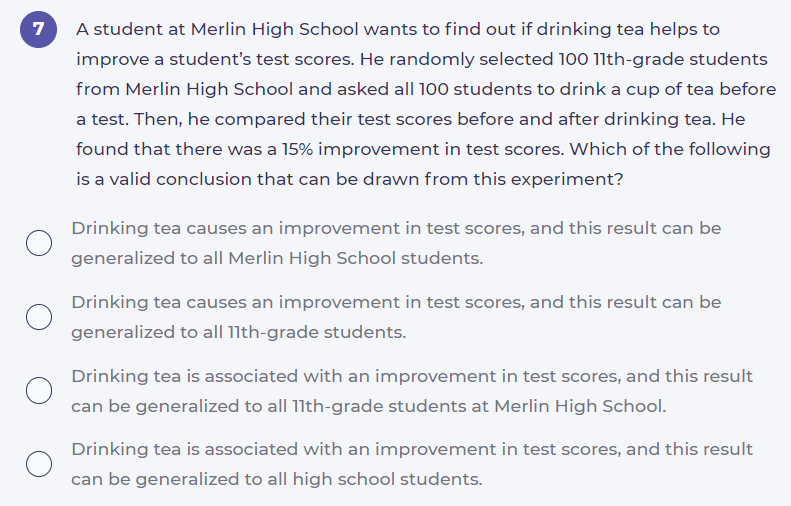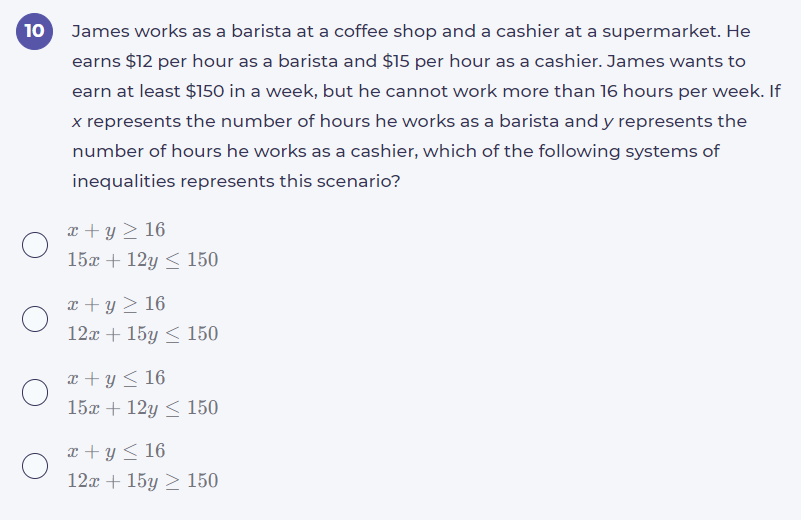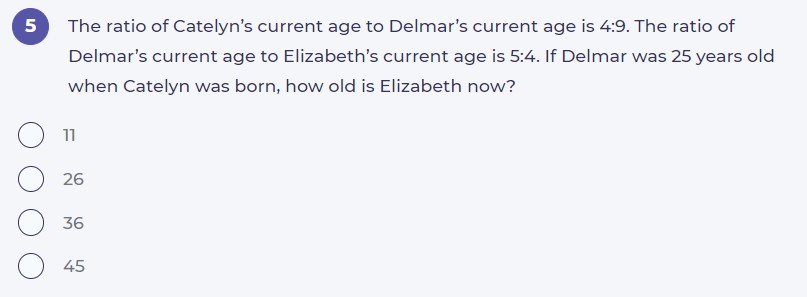Everything You Need To Know About The New Digital SAT
Read now/f/64062/2038x1356/ec9b05e898/sattest.jpg)
/f/64062/800x450/976633f040/sat-vs-act-cover.jpg)
The SAT and ACT exams are remarkably similar and hold equal weight with colleges. Deciding between the SAT vs. ACT depends on your strengths and learning style. The ACT features a science section and slightly faster pacing, while the SAT emphasizes in-depth analysis and includes a no-calculator math section. The best way to determine which test suits you is to take timed practice tests for both and see where you naturally excel.
Test-optional is everywhere, but millions of students still sweat over the SAT or ACT. Why? Even without being mandatory, these scores can boost scholarship chances, strengthen applications, and satisfy specific programs. If you're taking one, the big question is: SAT or ACT?
In this post, we'll break down the key similarities and the little details that matter. We'll also discuss trends like online testing and why these 'optional' tests hold importance.
The good news is that colleges today treat the SAT and ACT practically the same. Both tests cover similar ground to help colleges predict your college success. Originally, the SAT was considered more of an academic aptitude test, while the ACT was intended more as a placement test gauging mastery of high school concepts. Today, these distinctions have largely blurred.
| SAT | ACT | Notes | |
|---|---|---|---|
| Number of Question | 154 | 215 | ACT has more questions overall |
| Length of Assessment | 3 hours | 2 hours 55 mins | |
| Scoring Scale | 400-1600 | 1-36 | |
| Test Format | Online or Pencil and Paper | Online or Pencil and Paper (International); fully online starting Spring 2024 for US & some international test-takers | Note format changes |
| Test Dates | Seven times per year | Seven times per year | See specific websites for dates |
| Required Sections | Reading, Writing & Language, Math (with/without calculator) | English, Math, Reading, Science | ACT includes a dedicated science section |
| Cost (required sections only) | $60.00 | $63.00 | |
| Optional Sections | None | Writing (Essay) | |
| Pacing | Slightly MORE time per question | Slightly LESS time per question | This impacts pacing |
| Testing Agency | College Board | ACT | |
| Guessing Penalty? | No | No |
Most universities generally view the SAT and ACT as interchangeable. It's important to remember this before stressing about their differences! Here's what these tests have in common:
Remember: Stressing over one test versus the other usually isn't productive. Once you grasp how they differ, pick the one that fits your strengths better, not just its reputation!
Now that you understand these tests have more in common than you might guess let's dig into where the crucial differences lie.
Is a perfect 1600 better than a 36? The truth about SAT vs. ACT scoring might surprise you! After completing the SAT, you receive a score between 400 and 1600, whereas the ACT scores are between 1 and 36. Don't fixate on these looking so different! Colleges use conversion charts to compare them side-by-side when reviewing applications.
What matters more is how well you do compared to other test-takers. It's about percentile rankings that show where you fall in the nationwide pool of students.
Learn more about good SAT and ACT scores and how to achieve them!
| ACT Composite Score | SAT Composite Score |
|---|---|
| 36 | 1600 |
| 35 | 1560-1590 |
| 34 | 1520-1550 |
| 33 | 1490-1510 |
| 32 | 1450-1480 |
| 31 | 1420-1440 |
| 30 | 1390-1410 |
| 29 | 1350-1380 |
| 28 | 1310-1340 |
| 27 | 1280-1300 |
| 26 | 1240-1270 |
| 25 | 1200-1230 |
| 24 | 1160-1190 |
| 23 | 1130-1150 |
| 22 | 1100-1120 |
| 21 | 1060-1090 |
| 20 | 1020-1050 |
| 19 | 980-1010 |
| 18 | 940-970 |
| 17 | 900-930 |
| 16 | 860-890 |
| 15 | 810-850 |
| 14 | 760-800 |
| 13 | 720-750 |
| 12 | 630-710 |
| 11 | 560-620 |
SAT vs ACT: How Different are the Questions with Jamie Beaton
The biggest distinction between the tests is the ACT's dedicated Science section. Think of it this way:
This tests your ability to quickly interpret data, understand experimental setups, and spot conflicting scientific viewpoints. You won't need to recall a ton of memorized biology or chemistry facts.
If reading charts stresses you out more than science terms, this section might be rough even with extra time.
The science-like analysis will weave throughout other SAT sections. Passages may include research studies and graphs across various disciplines.
Even if you hate traditional "science" classes, if you find analytical reading enjoyable, your strengths could shine on the SAT despite its lack of a dedicated science section.

Important Note: Neither test requires specific science coursework. They're about thinking like a scientist, not regurgitating knowledge.
Ever blank out on 'easy' formulas mid-test, even though you studied? That panic matters more than SAT vs. ACT difficulty when it comes to your score! Both tests cover core high school math concepts, but the emphasis and question style vary:
The SAT tests some higher-level concepts not found on the ACT, such as imaginary numbers and complex functions. Plus, expect a dedicated no-calculator section to ensure mental math and formula awareness play a role.
If you freeze under time pressure, having memorized complex ideas won't matter when basic steps desert you!

The ACT emphasizes visual problem-solving, including a healthy dose of geometry. You'll encounter shapes, angles, graphs, and some basic trigonometry. While your calculator is a handy tool, relying on it too heavily can leave you stuck if your underlying number sense is shaky.
Like geometry, but hate word problems? The ACT has shorter passages compared to the SAT.

Our Crimson strategist notes that ACT math problems often lead to quicker elimination of obviously wrong answers or even educated guesses.
SAT math is generally considered to require more step-by-step solving to arrive at the correct solution. This gut feeling aspect has HUGE implications for which test lets your individual strengths shine.
If you are a student who thrives on quick pattern recognition and mental math, the ACT format could be your best bet. On the other hand, if you prefer a structured approach where careful calculation is key, you might find the SAT more in line with your problem-solving style.
Important Note: No matter the test, a strong foundation in core Algebra is essential for both. Don't neglect basic skills if either score is your goal!
The ACT's optional essay gives you a unique platform that the SAT no longer offers. While not required by all colleges, a strong essay score can boost your application for several reasons:
Key Takeaway: The ACT essay should be an advantage, not a source of stress. Know your target schools' requirements and be realistic about your prep!
The SAT gives you slightly more time per question than the ACT. But beware, this doesn't necessarily make it "easier."
Key Takeaway: Time limits matter, but so does your way of thinking. Take practice tests of BOTH formats under timed conditions to get a realistic picture of your comfort levels. This is more significant than the average seconds per question!
The best way to choose between the SAT and ACT is to consider your individual strengths, weaknesses, and preferred test-taking style.
Students who enjoy writing, literature, and verbal communication tend to prefer the ACT. Those more mathematically minded may prefer the SAT. Our experts recommend students take a practice version of both tests in order to determine which one they prefer.
It's tempting to want the answer to "Which test is easier?" There's a lot riding on a good score! Here's the truth: "Easy" depends on your individual strengths and weaknesses, not some universal definition.
Instead of looking for "easier," think more strategically:
The Bottom Line: Focus on playing to your strengths, not finding some magical "easier" test. That will maximize your scores more than any shortcuts!
Check out our free SAT and ACT practice tests to get a feel for which test suits you best!
The SAT vs. ACT decision can feel overwhelming. But remember, there's no "wrong" answer, only the best fit for YOU. The good news is, you don't have to navigate this alone. Our expert college counselors are ready to help you decipher your practice test results, pinpoint your strengths, and create a personalized test-prep strategy. Book your free consultation today or check out our online SAT & ACT tutoring services and take the first step towards conquering your college admissions goals!
What Makes Crimson Different